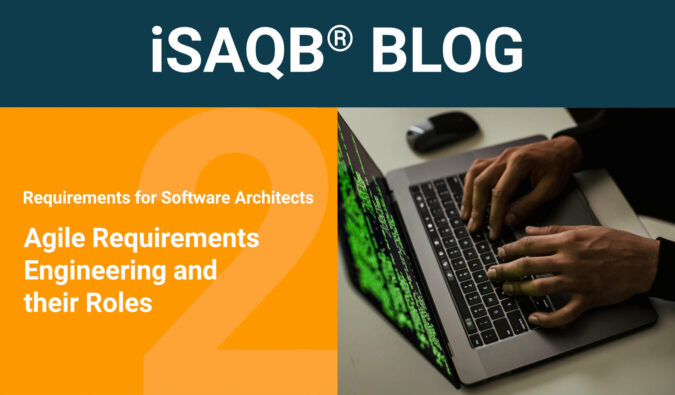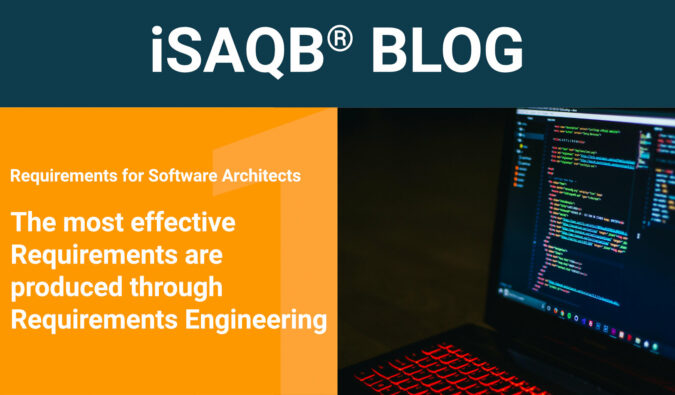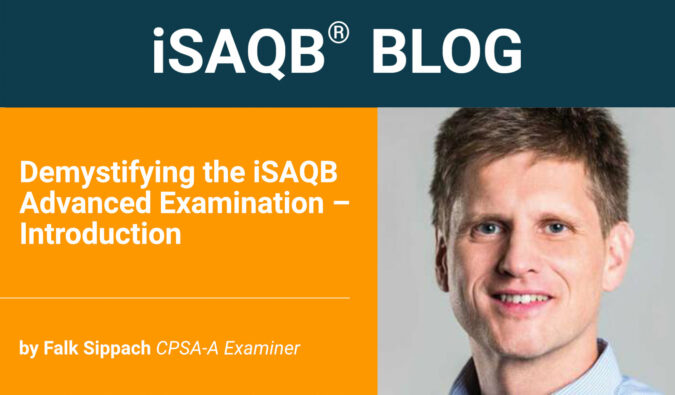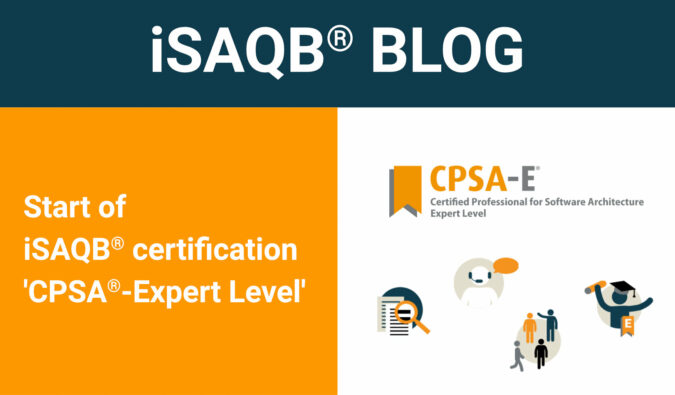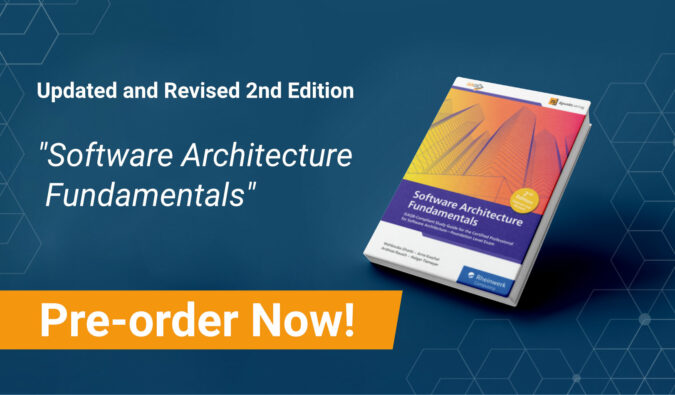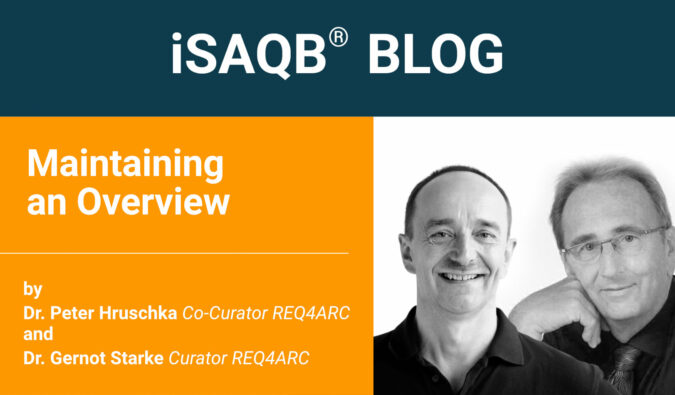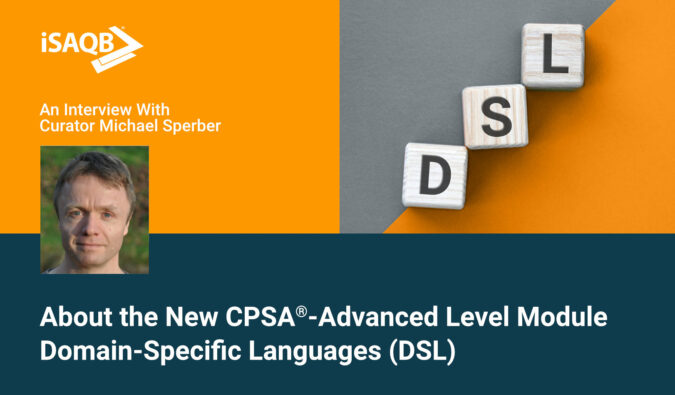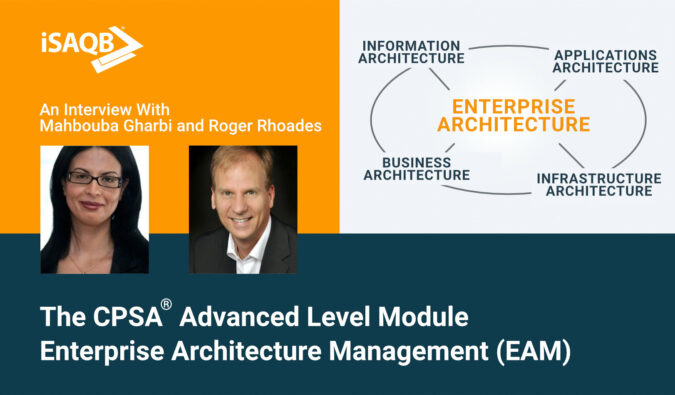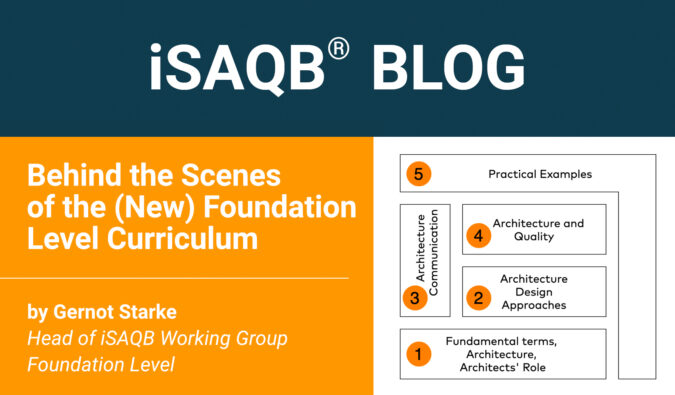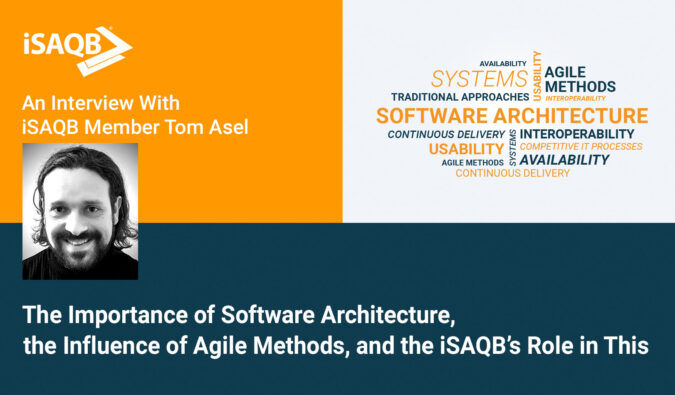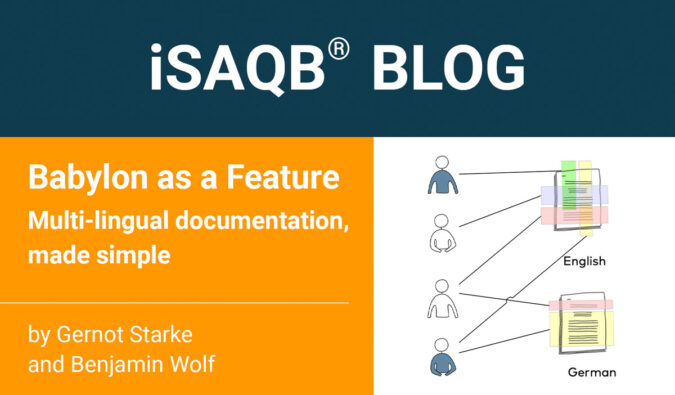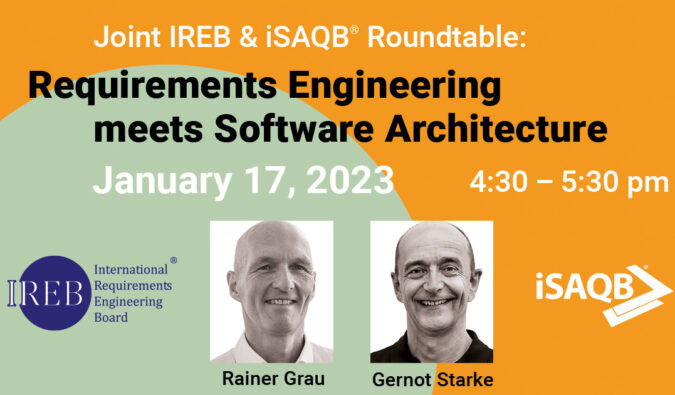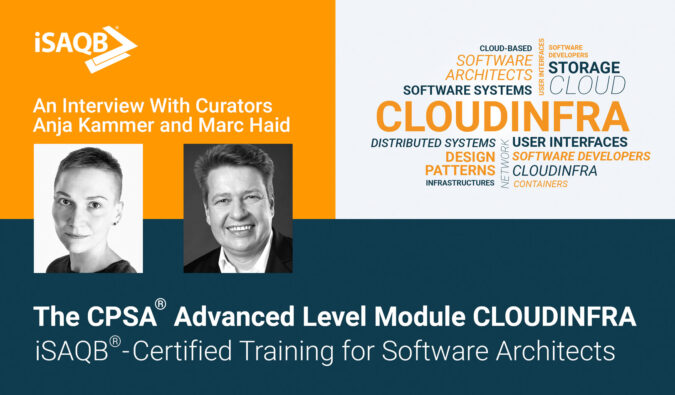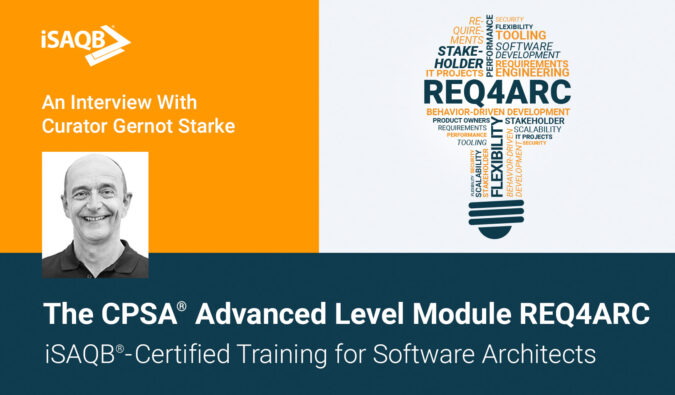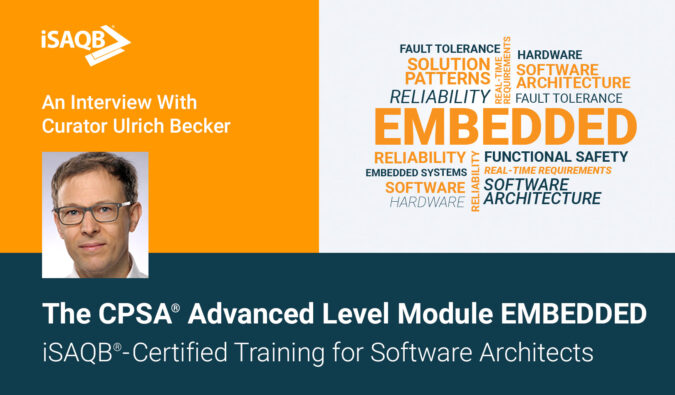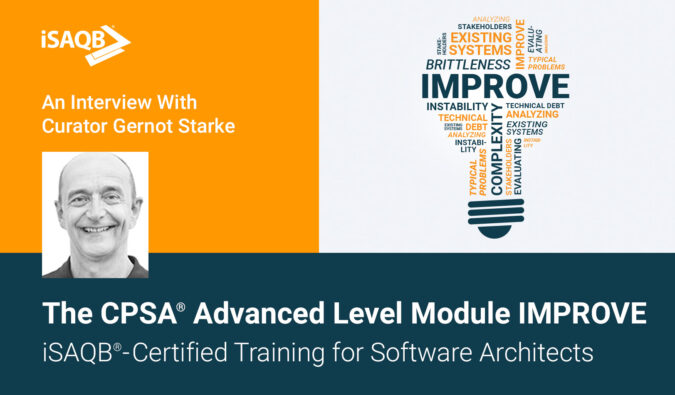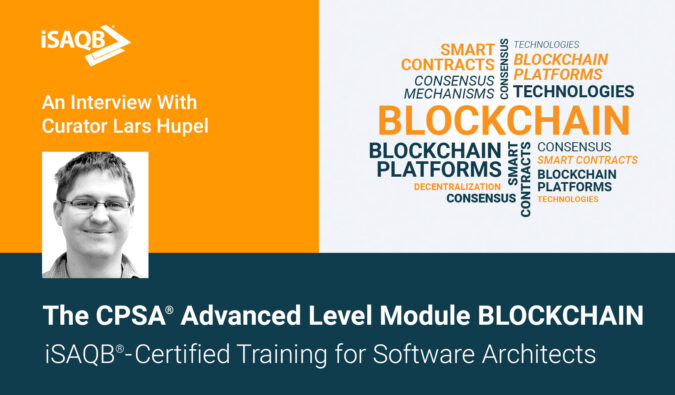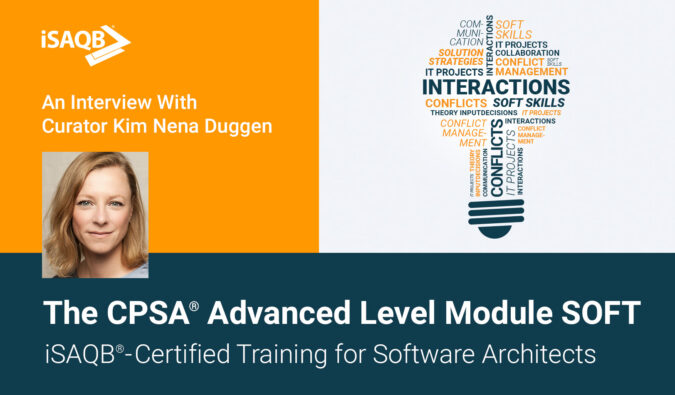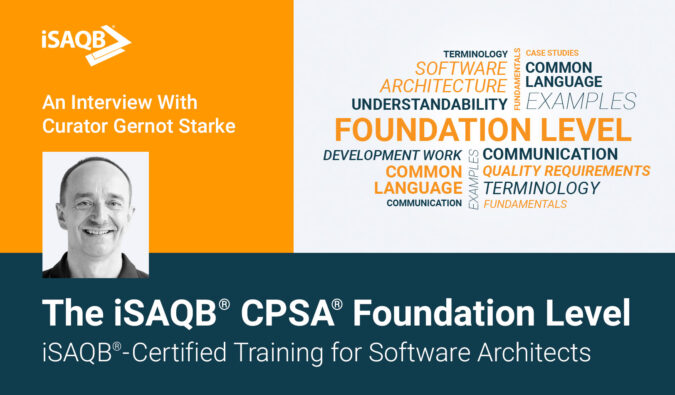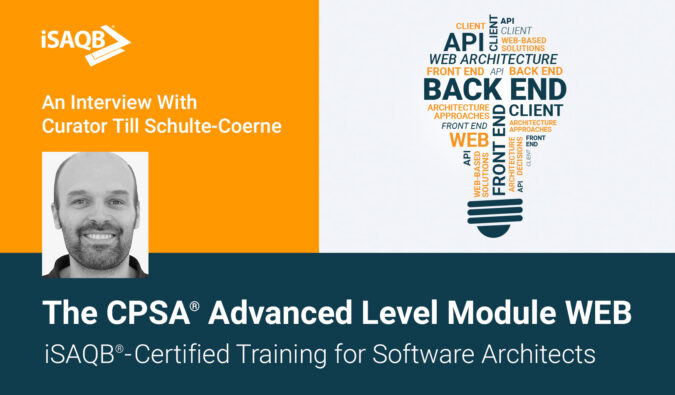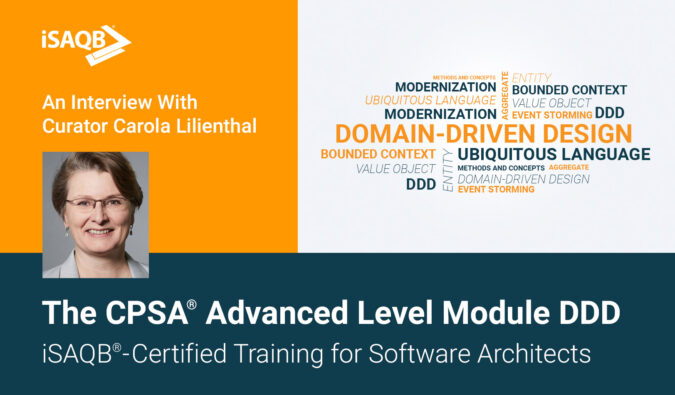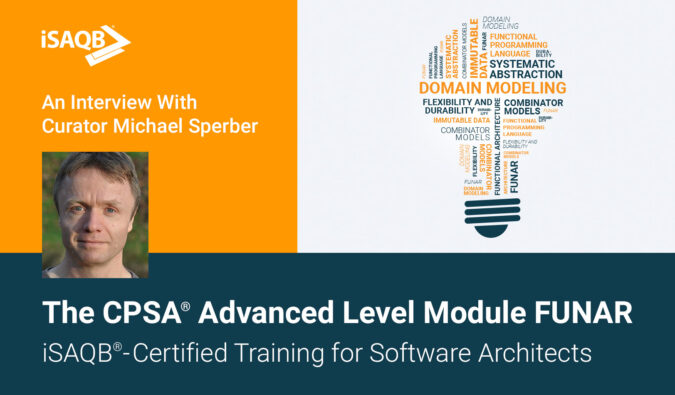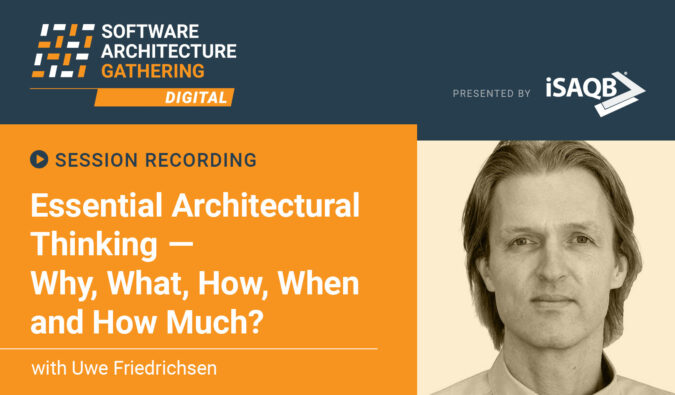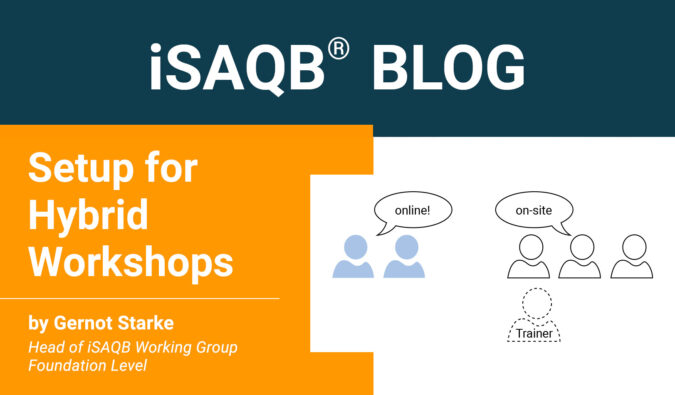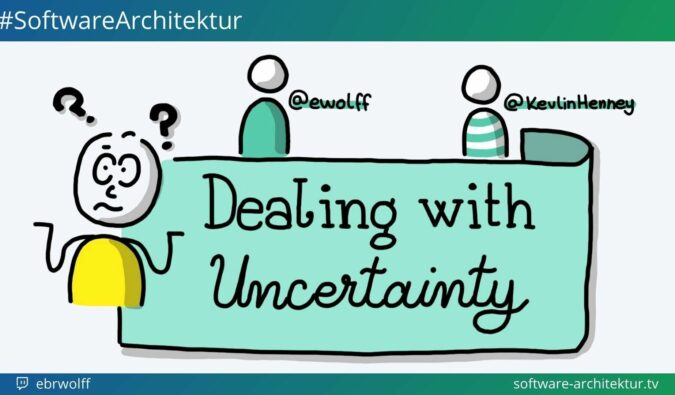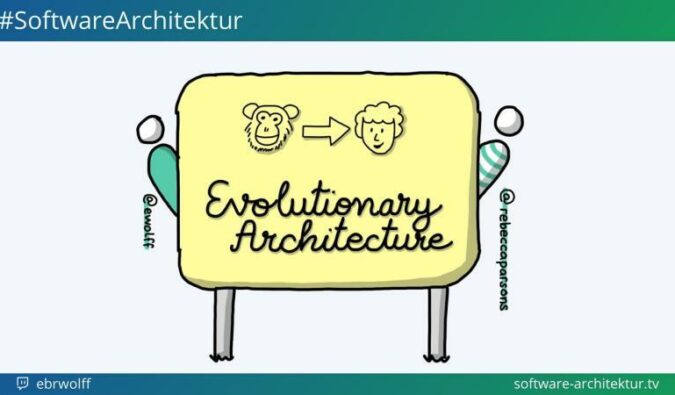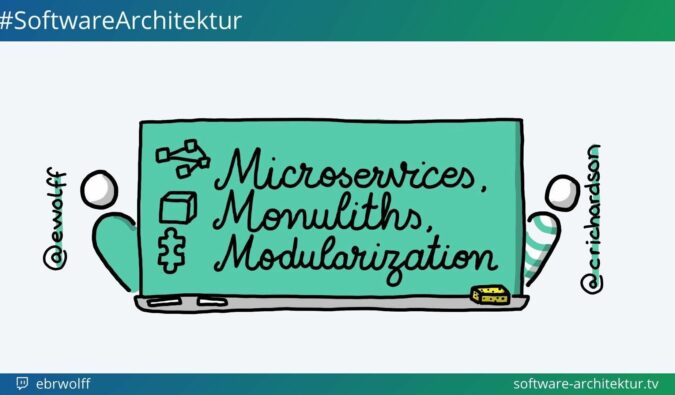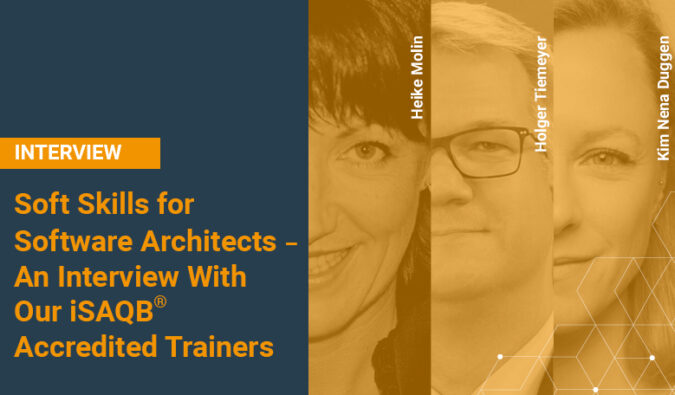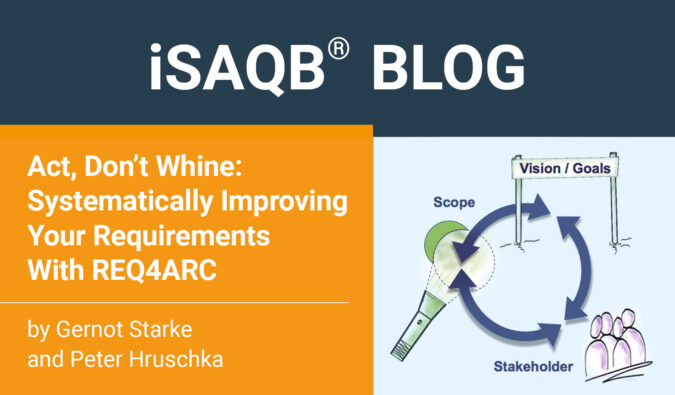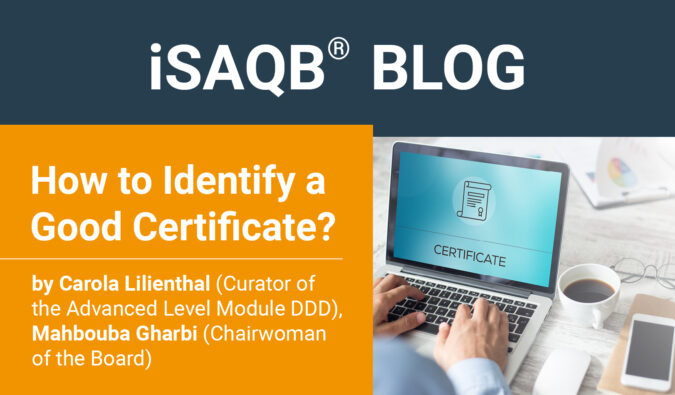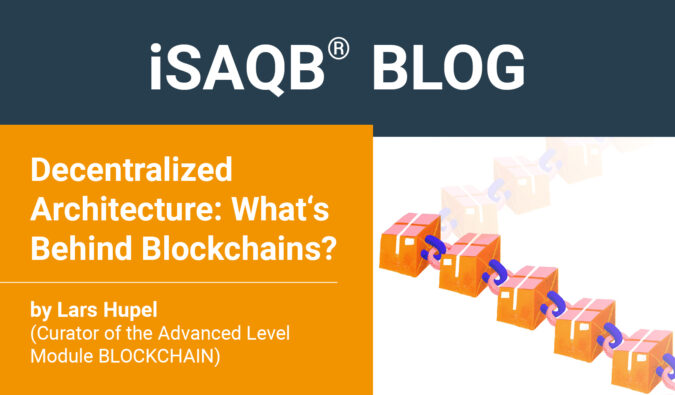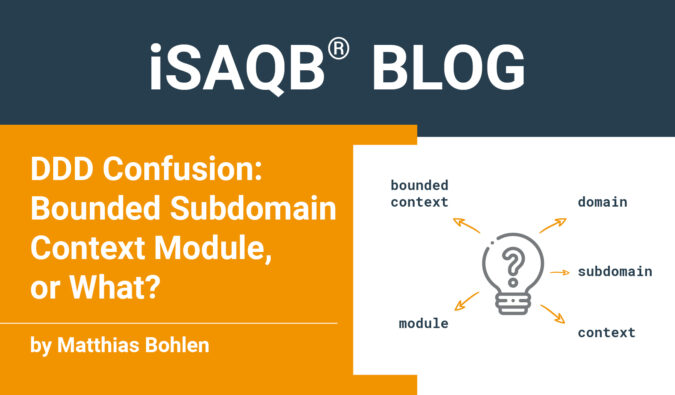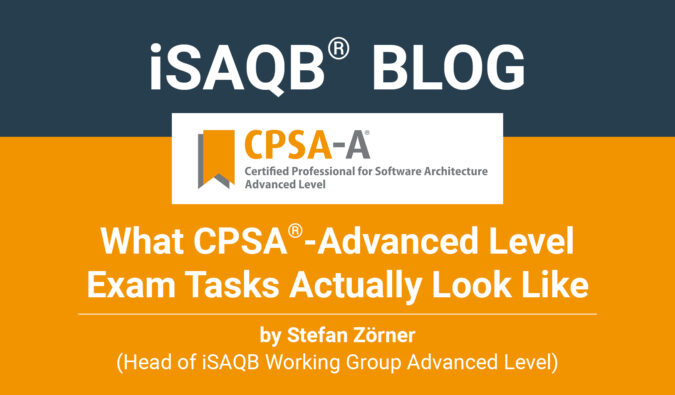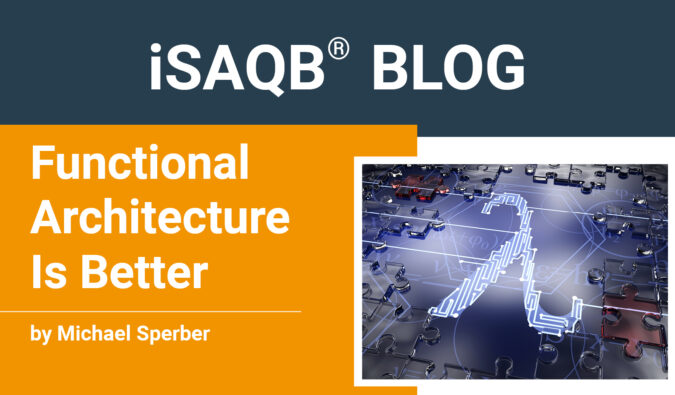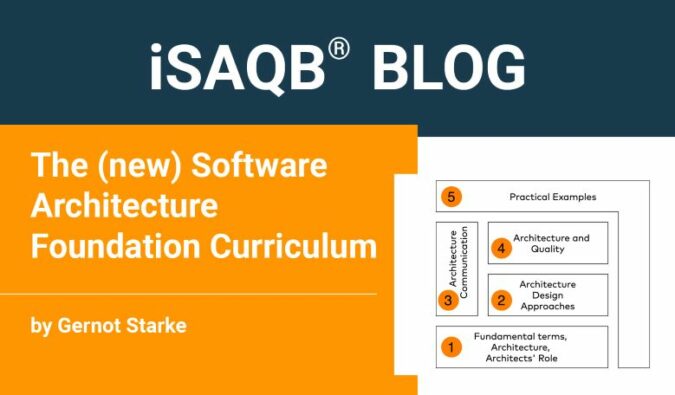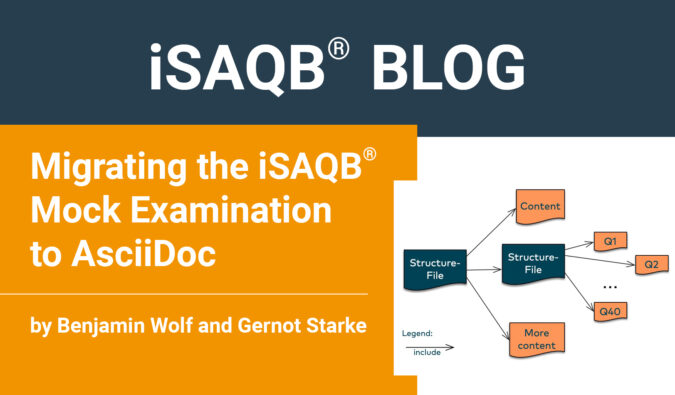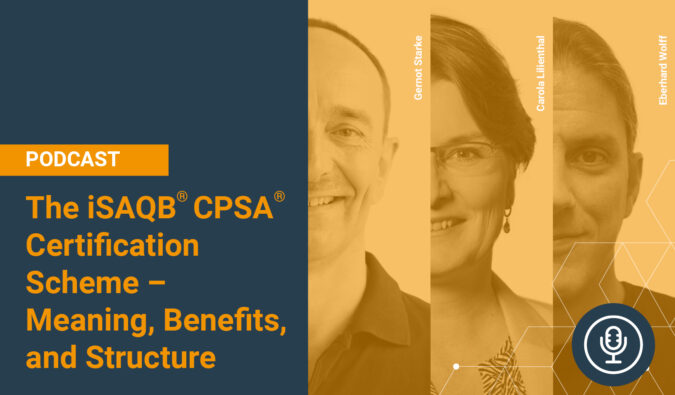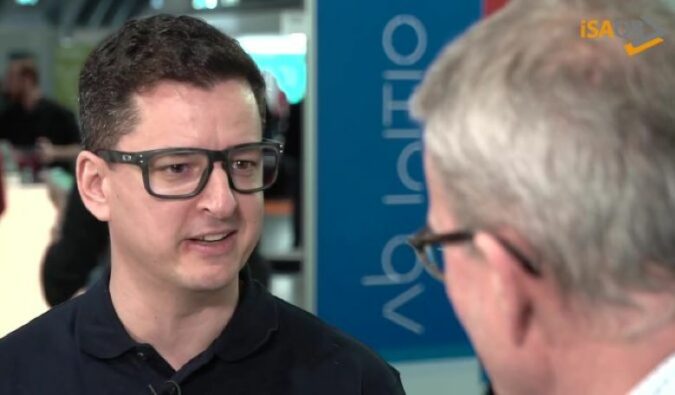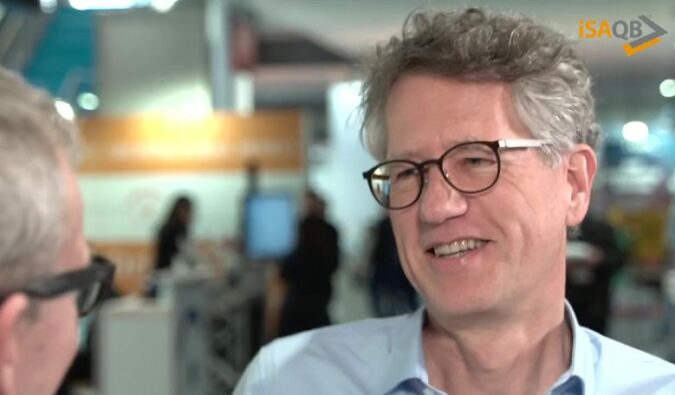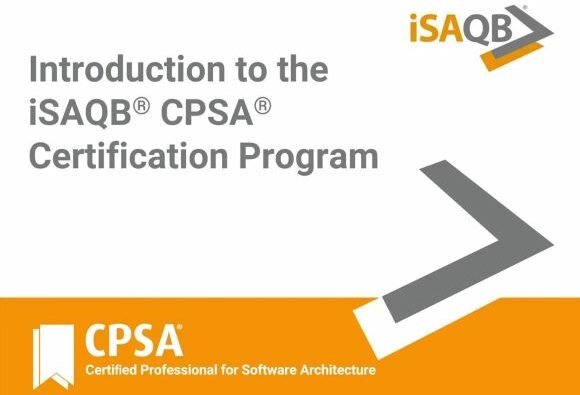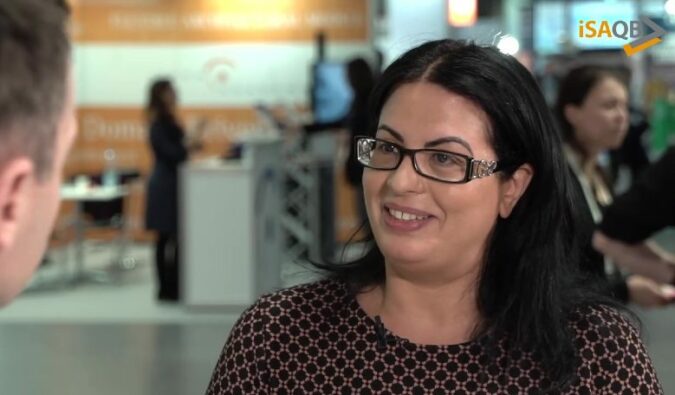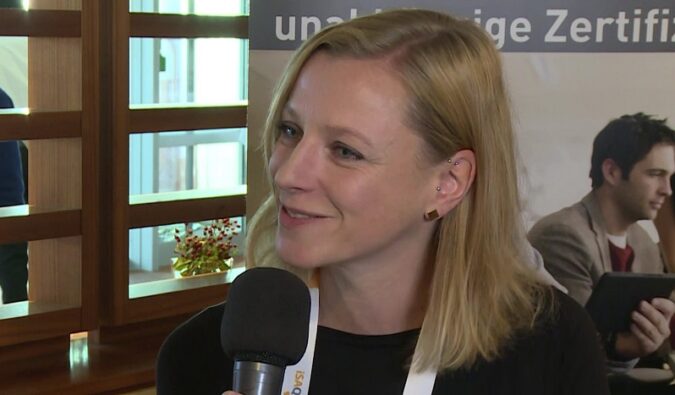BLOG
Welcome to the iSAQB® Blog
- All Topics
- ADOC
- ADVANCED LEVEL
- AGILA
Agile Software Architecture
- ARCEVAL
Architecture Evaluation
- BLOCKCHAIN
Low-Trust Consensus in Decentralized Applications
- CLOUDINFRA
Infrastructure, Container and Cloud Native
- DDD
Domain Driven Design
- DDD
- DSL
- EAM
Enterprise Architecture Management
- EAM
- EMBEDDED
Embedded Systems
- EXPERT LEVEL
- FLEX
Flexible Architectural Models
- FOUNDATION LEVEL
- FUNAR
Functional Software Architecture
- IMPROVE
Evolution and Improvement of Software Architectures
- REQ4ARC
Requirements for Software Architects
- SOA‑T
Service-oriented Architecture
- SOFT
Soft Skills for Software Architects
- SWAM
Mobile Architectures
- WEB
Web Architecture
- WEBSEC
Web Security
Requirements for Software Architects – Part 2 Agile Requirements Engineering and their Roles
This blog article outlines key requirements for software architects, highlighting the need for agile requirements engineering, addressing functional and non-functional requirements, managing complexity, and ensuring effective communication and implementation of architecture.
This blog article underscores the critical nature of requirements engineering in shaping effective software architecture, highlighting how it ensures that customer needs directly inform the development process.
Demystifying the iSAQB Advanced Examination – Introduction by Falk Sippach, CPSA‑A Examiner
Falk Sippach’s blog post introduces the iSAQB CPSA Advanced certification, detailing the practical and theoretical challenges involved in completing its rigorous project-based exam within three months alongside regular work.
The CPSA Expert Level is the highest certification level in the iSAQB’s CPSA program. Here you can find out how to apply for it.
The 2nd updated and revised edition of “Software Architecture Fundamentals” written by Mahbouba Gharbi, Prof. Dr.-Ing. Arne Koschel, Prof. Dr. Andreas Rausch and Holger Tiemeyer can now be pre-ordered. The new edition is available for pre-order in both the USA and Europe.
Maintaining an Overview Exploring REQ4ARC: Mastering Architectural Requirements for Agile Projects
The article “Maintaining an Overview” by Dr. Peter Hruschka and Dr. Gernot Starke emphasizes the importance of having a structured overview in software projects to effectively manage detailed requirements, suggesting a method to prioritize architecturally significant requirements early on.
On November 21, the iSAQB published the curriculum of the new Advanced Level module Domain-Specific Languages (DSL). DSL covers crucial techniques in programming language design and compiler construction. It enables participants to understand the role of DSLs in overall architecture, design user-friendly DSLs systematically, and recognize them as integral to architecture design. The editorial team…
The iSAQB editorial team asked several questions about the CPSA®-Advanced Level Module Enterprise Architecture Management (EAM) to Mahbouba Gharbi and Roger Rhoades. Both software architecture experts are long-standing iSAQB members and are, among other things, responsible for the maintenance and further development of the EAM module as curator (Roger Rhoades) and as co-curator (Mahbouba Gharbi).…
The time had come again: The new release of the iSAQB Foundation curriculum came out just in time at the beginning of April 2023. Alongside key differences compared to the previous version, this blog post explains how work is undertaken within an international and decentral association and what methods and tools we use. Why a new…
Tom Asel is an iSAQB member and the founder of tangible concepts. He has been working as a developer, architect, and trainer in software development for over 15 years. Agile architecture work is a focus of his professional activities. He supports teams and organizations in aligning development processes, skills, technologies, and architectures. We talked to…
The Tower of Babylon is a myth meant to explain why the world’s peoples speak different languages. Refer to Bibliography [0] below for details. In modern IT systems, it’s often a requirement to support multiple languages. Such internationalization (i18n for short) is a tough challenge – and this post describes a simple solution to just…
“How does Requirements Engineering impact Software Architecture decisions and vice versa?” At the first joint roundtable of IREB and iSAQB, experts Gernot Starke (iSAQB) and Rainer Grau (IREB) discuss how the cooperation of both disciplines works in practice and what needs to be improved. A deeper dive into these questions can provide important answers for almost…
What is behind the CPSA Advanced Level training CLOUDINFRA: Infrastructure, Container, and Cloud Native? What can participants expect from this training course which is one of 17 modules of the iSAQB’s multi-level CPSA program (Certified Professional for Software Architecture)? The module curators Marc Haid and Anja Kammer shed light upon some very relevant questions concerning…
The CPSA Advanced Level module REQ4ARC, one of 17 Advanced Level training options, concentrates on requirements for software architects. But what exactly is in it for participants? The iSAQB member and curator of REQ4ARC, Gernot Starke, took the time to give a short interview about this module with some highly relevant questions concerning content, target…
The iSAQB’s multi-level CPSA scheme, short for Certified Professional for Software Architecture, is a program of further education. It is aimed at IT professionals who work on solution structures. At Advanced Level, the second step of the CPSA program, participants can choose between 17 modules – and one of them covers the topic of embedded…
What is behind the CPSA Advanced Level module IMPROVE, one of 17 trainings that participants of the Advanced Level can choose from? The CPSA Advanced Level is the second step within the iSAQB’s multi-level CPSA program (Certified Professional for Software Architecture) after the Foundation Level. Gernot Starke, iSAQB member and curator of the Advanced module…
The CPSA Advanced Level is the second step within the iSAQB’s multi-level CPSA program (Certified Professional for Software Architecture). One of the 17 training options of the Advanced Level that participants can choose from is the module BLOCKCHAIN – Low-Trust Consensus in Decentralized Applications. In this informative interview, Lars Hupel, curator of the Advanced module…
The CPSA Advanced Level is the second step within the iSAQB’s multi-level CPSA program (Certified Professional for Software Architecture). Participants can choose from 17 trainings, so-called modules, in three areas of competence – technological, methodical, and communicative competence. The most important training when it comes to communicative competence is the Advanced Level module SOFT (Soft…
Why Should I attend the CPSA® Foundation Level Training Course? An Interview With Curator Gernot Starke
The iSAQB’s Certified Professional for Software Architecture program (CPSA) is a program of further education. It is aimed at anyone who works on solution structures in IT projects. Within the multi-level CPSA program, the Foundation Level is the first step. It provides a solid and pragmatic introduction to software architecture. But why exactly should you,…
Which audience does the module WEB address? The training course is meant for people who are looking for a somewhat broader overview of the huge subject that is “web”. The goal is to illuminate and classify as many existing standards as possible as well as different approaches to architectures on as many levels as possible…
Which audience does the module DDD address? The module DDD is aimed at software architects and software developers who not only want to feel at home in technology, but who would also like to learn about methods and concepts that support them in deeply understanding the domain and modeling it in software. This module is…
Which audience does the module FUNAR address? The training course is meant for all software architects who are curious about approaches to software architecture that are fundamentally different from traditional OOP-based approaches (and more effective, of course). What is the relevance of the module for the professional practice of software architects? That depends: Functional…
SAG 2021 Session Recording: “Essential Architectural Thinking” Why, What, How, When and How Much?
There is a lot of confusion regarding architectural work these days. When? How much? Who? Tons of heated debates, and nobody is asking the essential question: Why? But without asking Why, all the other questions are futile. Thus, this session at the Software Architecture Gathering 2021 by Uwe Friedrichsen will start by asking: *Why* do…
Setup for Hybrid Workshops
Abstract Hybrid: From Latin hybrida, a variant of hibrida. Something of mixed origin or composition; often, a tool or technology that combines the benefits of formerly separate tools or technologies. (Source: Wiktionary) Hybrid workshops allow people online and on-site to collaborate, both in education/training, or other types of meetings. Before COVID-19, workshops and trainings were…
Kevlin Henney on Dealing with Uncertainty Eberhard Wolff’s Software Architecture in Stream
Software architects are faced with uncertainty more often than we would like to admit. How can we deal with it — or can we even make it disappear? In this episode of Eberhard Wolff’s Software Architecture in Stream, Kevlin Henney talks about uncertainty and how to deal with it. Kevlin Henney has been a member…
Rebecca Parsons about Evolutionary Architecture Eberhard Wolff’s Software Architecture in Stream
The architecture of a system has to change over time. In this episode of Eberhard Wolff’s Software Architecture in Stream, evolutionary architecture and why it is important will be discussed. Rebecca Parsons and Eberhard Wolff will talk about patterns and principles to build architectures that stand the test of time. Dr Rebecca Parsons co-authored the…
Software architecture is essentially about how you divide a software system into multiple parts. In this episode of Eberhard Wolff’s Software Architecture in Stream, Chris Richardson and Eberhard Wolff have an exciting conversation on the topic of microservices, monoliths, and modularization. Chris Richardson is a Java champion and a Java One rock star. These days,…
A myth: The iSAQB seminars – regardless of Foundation or Advanced Level – primarily rely on hard skills – technical know-how that modern software architects should possess in order to do their job well. At the same time, it has long been clear to industry insiders that IT projects rarely fail because the people involved are…
In many consulting projects over the last few years, we have seen development teams complain about two things: that they suffer from a lack of good requirements or that they have not received important requirements or have received them much too late. They then blame requirements engineers, business analysts, or product owners who “didn’t do…
How to Identify a Good Certificate?
There is a wide range of certificates on offer, yet most certificates and certification procedures are based on a similar process with some comparable variants…
Fueled by ever new highs in cryptocurrency prices, there is currently a lively debate about blockchains…
In my work as a trainer for domain-driven design (short: DDD), I notice that…
This blog post answers the most important questions about the written part of the iSAQB Advanced Level exam…
Functional Architecture Is Better
Wittgenstein wrote, “The limits of my language mean the limits of my world.” Moritz Nähr, Public domain, via Wikimedia Commons And functional architecture works best with functional programming languages. Functional Software Architecture (“FUNAR”) is one of the most advanced curricula in the iSAQB Advanced canon. It’s about the specific techniques for domain modelling and structuring software…
Want to learn Software Architecture? Look no further – the recently released iSAQB Foundation Curriculum covers all your needs! A group of international software architecture experts has been working on optimizing and streamlining this systematic education path, resulting in the most systematic and practical curriculum ever. The 2021 update is the result of nearly 12 months…
The iSAQB provides a mock exam for the Foundation Level certification. This post shows how we moved this exam from docx format to AsciiDoc, facilitating collaboration and enabling automated generation of the required multilingual document variants. So, this is the story of how we moved from Microsoft Word to AsciiDoc for the collaboration on files…
In this brand-new podcast episode, Carola Lilienthal, Gernot Starke, and Eberhard Wolff sat together to discuss the iSAQB’s two-level certification scheme CPSA – Certified Professional for Software Architecture – in detail. What are the reasons for, and what is the actual meaning of the CPSA certification program? Which are the benefits for participants, but also…
Christoph Witte: Hello, my name is Christoph Witte. I’m a freelance journalist. I’m here in front of the booth of the International Software Architecture Qualification Board at the OOP conference in Munich. And I want to talk to Mischa Soujon. He’s working at IBM as a solution architect, making prototypes, and proof of concept for…
Christoph Witte: Hello, my name is Christoph Witte, I’m a freelance journalist, and we are here in front of the booth of the International Software Architecture Qualification Board at the OOP conference in Munich. Today I’d like to talk with Alexander Simon. He’s an IT consultant and owner of the company emax-it. And he’s an…
Christoph Witte: Hello, my name is Christoph Witte. I’m a freelance IT journalist, and I’m here at the booth of the international Software Architecture Qualification Board at the OOP conference in Munich. I want to talk to Gerhard Wanner. He’s a professor at the University of Applied Sciences Stuttgart, and he’s teaching students in software…
You are a software architect, or interested in becoming one, and would like to know more about the iSAQB CPSA certification program, and how your career could benefit from it? Then take a look at this presentation, created in a cooperation with iSQI. iSAQB member Roger Rhoades gives an overview of the field of software architecture,…
Mirko Hillert: Hello, we are here at OOP in Munich. Standing next to me is Mahbouba Gharbi, chairwoman of the iSAQB. Mahbouba, you are an author, software architect and trainer. You wrote a book with Arne Koschel, Andreas Rausch and Gernot Starke. It is called Software Architecture Fundamentals. The book is quite successful and is…
Mirko Hillert: Hello, we are here at the Architectural Gathering 2019 in Munich. Kim Nena Duggen is sitting next to me. Perhaps you can briefly introduce yourself to our viewers again. Kim Nena Duggen: Sure. My name is Kim Nena Duggen. I work for embarc as an organizational developer. embarc performs software architecture, agile software…


